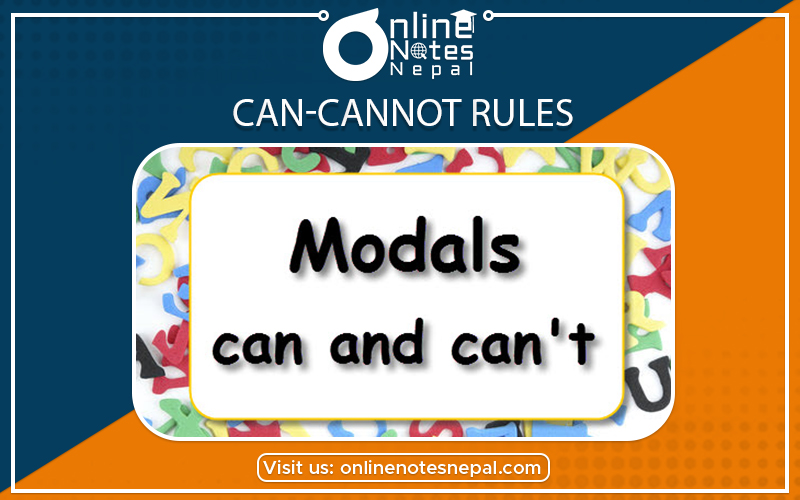Published by: Zaya
Published date: 06 Jul 2021

We use Can-Cannot rules when we don't have the ability, the time, or the will to do something. For example, I cannot sing. I do not have the ability or skill. I can't go with you.
We use Can when we have the ability, time, or will to do something. For example, I can play the guitar. (This means that I have the ability to play the instrument) OR I can go to the store later (I have the time to go soon) OR I can help you (I want to help you).
We use Cannot (or Can't) when we don't have the ability, the time, or the will to do something. For example, I cannot sing. (I do not have the ability or the skill). I can't go with you. (I don't have the will to accompany you). I can't travel until December. (I don't have the time to travel because I am busy working).
In English, Language Can is used to say that something is possible.
Can is the same for all First, Second, and Third Person/ Subjects.
The verb that follows Can is in infinitive without to:
Adding "not" after can to form one word: cannot result in forming negative sentences
We can also shrink the Cannot form can't. (can't = cannot)
To form a question we change the position of the subject and the auxiliary verb.
The main verb is still in the infinitive without to.
You can use short answers like below:
In some conditions, You can and Can you dance? are impersonal and refer to people in general.
It doesn't necessarily refer to you but people in general.